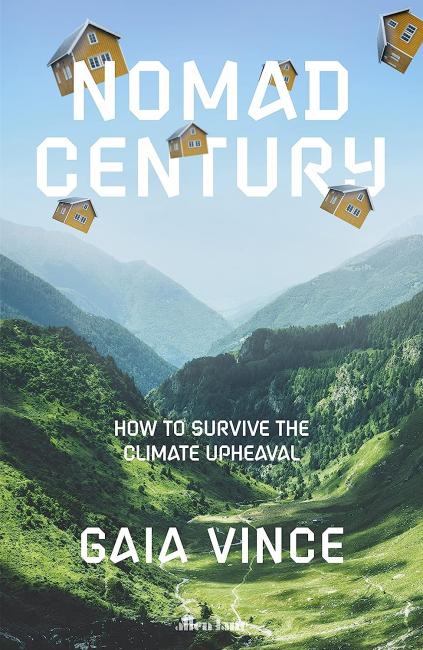Due to the impacts of global warming, ‘human movement on a scale never before seen will dominate this century and remake our world.’
This is the central proposition of this important popular science book. Gaia Vince, an honorary senior research fellow at University College London, believes we are on course for a 3 – 4 °C of temperature rise by 2100, with tens of millions of people forced to leave their homes by mid-century.
Vince points to some African cities: by 2030, Dar es Salaam in Tanzania will have a population of 11 million, Cairo in Egypt and Lagos in Nigeria will have 24 million each. She notes: ‘None of them will be viable within a few decades.’
Frightening though many of Vince’s conclusions are, she sees this huge upheaval as an opportunity, arguing that ‘migration is not the problem, it is the solution.’ The ageing population in the relatively wealthy North, including in the UK, will require a large influx of younger migrants to keep society functioning, she argues.
Beyond this, Vince contends, large cities need to be quickly built in the Arctic – including in northern Canada, Greenland and Siberia – to house millions of climate-induced migrants in the years to come.
One of the most interesting sections of the book looks at how this might be managed. Vince suggests a global United Nations migration organisation with powers to compel governments to accept refugees, oversee a system for matching people with job vacancies, bestow UN citizenship, and manage relocation, funding and, in the future, returns.
It is worth noting the book is about much more than climate change and migration. From our diets to urban design, housing, transport and agriculture, the second half is an inspiring blueprint for how society can be sustainably re-organised.
Many of the proposals will be familiar to green activists, though Vince has a knack for highlighting fascinating developments.
I didn’t know Australia is currently building the world’s largest solar battery installation to send renewable electricity to Singapore, over 4,000km away. Or that, for the past decade, Kiribati, a low-lying island nation in the Pacific Ocean, has been undertaking mass emigration in the face of catastrophic sea-level rise, purchasing land in Fiji to house some of its population.
With informative maps and a manifesto at the end, Nomad Century is an accessible introduction to the existential threat of climate change – a useful book to give to someone who isn’t sold on the urgency of the crisis.
However, I do have a couple of serious reservations.
First, there is a frustrating lack of referencing at times. For example, while coral reefs are no doubt hugely important, I would have liked to have seen a citation for Vince’s claim that they support ‘the livelihoods of one billion people globally’.
Furthermore, the references Vince does use when discussing the size of the mass migration caused by climate change don’t seem to stack up: either they don’t accurately reflect the research being cited, or the research cited refers to the worst-case, much-less-likely temperature increase scenario – the Intergovernmental Panel on Climate Change’s ‘business as usual’ emissions pathway (technically ‘RCP8.5’).
Second, Vince leans heavily on (often unproven) technological solutions. She backs genetically-modified crops as well as the idea that farming in regions which will become unliveable, such as India and Thailand, could remain viable with ‘remotely-controlled robotic farmers, drone seed dispersal and AI-directed machinery for harvesting’.
Moreover, Vince ends by advocating planetary-sized geoengineering, arguing that solar reflectivity ‘should be deployed without delay’ – a course of action many climate scientists and experts, including professor Michael E Mann and Naomi Klein, are highly sceptical about.
This focus on technology masks a relative lack of interest in politics, specifically in the role of grassroots activism in driving the changes she believes we need to urgently make. As Dr Aaron Thierry, a climate scientist active with Extinction Rebellion, recently tweeted: ‘The key question of our times is; how can we create powerful social movements that can resist and challenge that corporate capture and reclaim our democracies.’


